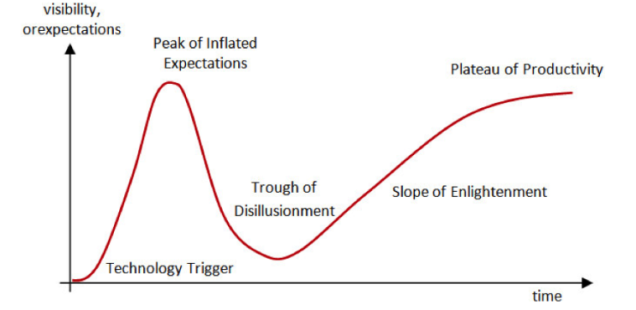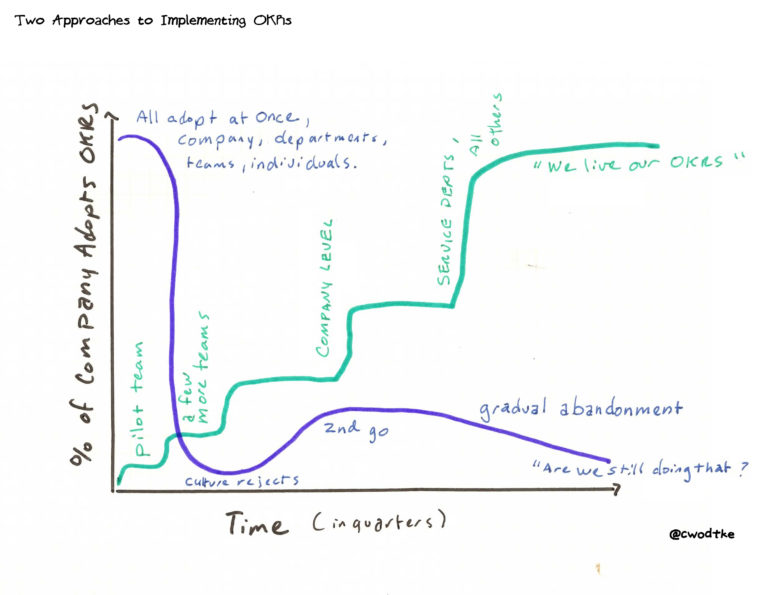Just like new technologies, methodologies can suffer from the hype cycle. OKRs are no exception; I’ve met a number of people deeply disillusioned with OKRs and unwilling to give them a second chance. But just like Lean or Agile, just because a given company implements the approach badly does NOT mean the approach has no value.
When a company first hears about the Objective and Key Result approach, they are excited.
“Now I know what the secret of success is!” and they rush to implement it across the entire company. Often a manager thinks this is the silver bullet he’s been seeking.

But the first time you try OKRs, you are likely to fail. While OKRs are not complicated, they are hard work and often require cultural change. Failure can be a dangerous situation, as your team may become disillusioned with the approach and be unwilling to try them again. You don’t want to lose a powerful tool just because it takes a little time to master.

There are three approaches you can use to reduce this risk.
- Start with only one OKR for the company. By setting a simple goal for the company, your team sees the executive team holding themselves to a high standard. It won’t be surprising when next quarter they are asked to the do the same. And by not cascading it, you both simplify implementation AND see who chooses to adopt OKRs and who will need coaching.
- Have ONE team adopt OKRs before the entire company does. Choose an independent team that has all the skills to achieve their goals. You can then trumpet their success if it happens, or wait a cycle or two until they perfect their approach and then roll out OKRs across the company.
- Start out by applying OKRs to projects, in order to train people on the objective-result approach. GatherContent is a great example. Every time they have a major project, they first ask what is the objective for this project, and how will we know if we’ve succeeded. (This case study will be included in my new book, Radical Focus, coming this January. Sign up to be alerted when it’s released)
In all these approaches, avoid the deadly OKR mistakes and focus on learning what works in *your* company culture. By starting small and tracking how OKRs will work in your organization, you increase your chances of your company adopting a results-based approach, and reduce the danger of a disillusioned team.
OKRs are not a silver bullet. They should be part of a suite of approaches a company adopts. They exist to create focus while increasing employee satisfaction and productivity. Combined with Lean, Agile and a strong management approach, OKRs will help you get you out of the trough of disillusionment, and to the plateau of productivity.